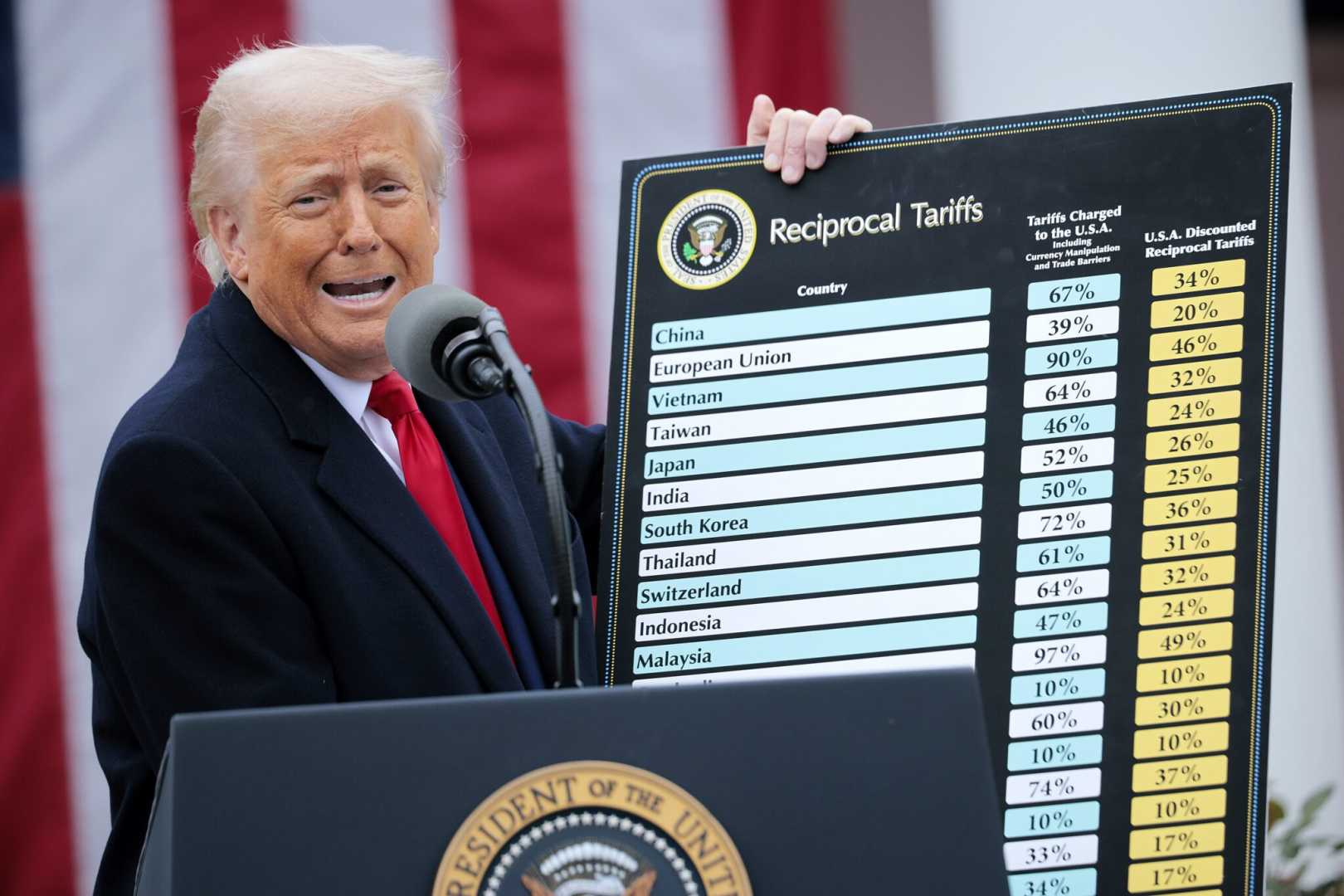Politics
Congress Acts Against Trump’s Tariffs Amid Bipartisan Concerns

WASHINGTON — In response to growing concerns over President Donald Trump‘s tariffs, Congress has begun to take action. Following a GOP-led Senate vote on Wednesday to reverse his tariffs on Canada, lawmakers from both parties are considering additional legislative measures to limit the president’s ability to impose tariffs unilaterally.
Senators are exploring various mechanisms to rescind existing tariffs while adding checks to Trump’s power. Democrats in the House are working on strategies to force a vote to revoke the tariffs on Canadian products, seeking bipartisan support.
The proposed legislation faces significant hurdles, including the need to overcome a presidential veto. However, increased support in Congress may influence Trump’s strategy regarding tariffs as a central part of his administration’s agenda.
Sen. Chuck Grassley, R-Iowa, a prominent Trump ally and third in line for the presidency, introduced a bipartisan bill on Thursday with Sen. Maria Cantwell, D-Wash. The legislation, known as the Trade Review Act of 2025, aims to restore congressional authority over tariff regulations. It would require the president to notify Congress within 48 hours of levying new tariffs, providing reasoning and an analysis of the economic impact. Following the notification, Congress would have 60 days to approve or reject the tariffs; otherwise, they would be rescinded automatically.
“For too long, Congress has delegated its clear authority to regulate interstate and foreign commerce to the executive branch,” Grassley stated. “This bill will reassert Congress’ constitutional role and ensure a voice in trade policy.”
Sen. Thom Tillis, R-N.C., expressed support for Grassley’s initiative, stating that it reflects the principle of Congress as a co-equal branch of government. “I like congressional review… In trade, it’s a good example,” he remarked, though uncertainty remains about whether the Senate will bring the bill to a vote.
The Grassley-Cantwell bill comes shortly after the Senate passed a resolution aimed at repealing Trump’s tariffs on Canadian goods, with support from all 47 Democrats along with GOP Senators Susan Collins, Lisa Murkowski, Rand Paul, and Mitch McConnell.
Sen. Tim Kaine, D-Va., the author of the resolution, acknowledged the necessity of continuing efforts to block Trump’s tariffs. He noted that significantly more than four Republicans were interested in the resolution than those who voted for it, anticipating broader support as economic pressures escalate. “There is going to be massive economic heartbreak in this country if Congress fails to undo the tariffs,” Kaine cautioned.
Despite bipartisan interest, partisanship poses challenges. Some Republicans are hesitant to oppose Trump due to potential backlash from their base. Sen. Mike Rounds, R-S.D., expressed concerns about the current political climate, stating, “You have to do it in a neutral environment… when there is a tariff in question.”
House Democrats are also looking to introduce a resolution to halt the Canadian tariffs, similar to the Senate’s action. With Speaker Mike Johnson, R-La., reluctant to criticize Trump openly, Democrats are evaluating methods to bypass GOP leadership. Rep. Gregory Meeks, D-N.Y., announced plans to file a discharge petition, which would enable supporters to force a vote if they collect 218 signatures.
“Our neighbor to the north is one of our closest allies and trading partners,” Meeks stated. “These tariffs are causing needless suffering… and must be repealed.”
A discharge petition cannot be applied to the Senate’s measure, meaning the House would need to draft its own bill, which may mirror the Senate’s proposal. Rep. Marcy Kaptur, D-Ohio, indicated her support for replicating the Senate’s action.
Rep. Josh Gottheimer, D-N.J., a former co-chair of the bipartisan Problem Solvers Caucus, is collaborating with Meeks on this initiative. “People are struggling with high costs right now… whacking them with tariffs is adding insult to injury,” he noted.
Some Republicans are also expressing discomfort with the tariffs. With the GOP holding a slim 220-213 majority, a few dissenting Republican votes could lead to the success of the discharge petition. Moderate Rep. Don Bacon, R-Neb., mentioned his willingness to support the effort, emphasizing the need for a debate before a vote. “I do think Congress should take back its tariff authorities and I think tariffs on Canada are inappropriate,” he stated.












